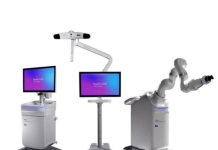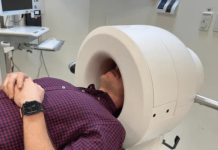Generative artificial intelligence companies continue to rake in funding despite a chilly market. GenHealth AI brought in $13 million in early funding last week that will help the company continue its work in what it is calling a large medical model, or LMM.
The Boston-based company states that its LMM follows similar principles of a large language model (LLM), but instead of the transformer neural network being trained on text, GenHealth AI’s LMM is trained on medical event data. The patent-pending approach is less prone to hallucinations, bias from human input and more able to address various tasks across healthcare, according to the company, which spun off from 1upHealth three months ago.
“Interest in practical applications of AI for healthcare has been intense and growing,” said Ricky Sahu, GenHealth AI founder and CEO, in a press release. “Generative AI is like nothing else out there, and our mission is to bring that force to healthcare, impacting the daily lives of billions. Soon, most major health decisions will take guidance of an AI and GenHealth will be that AI.”
The company is led by 1upHealth founder Sahu along with Eric Marriott and Ethan Siegel, engineers that joined the 1upHealth team in its early stages of growth.
Craft Venture and Obvious Ventures co-led the funding round. GenHealth AI also added two members to its advisory board. Former National Coordinator for Health IT Don Rucker, M.D., and inaugural Chief Technology Officer of the United States Aneesh Chopra joined as advisors. Rucker currently holds the position of chief strategy officer for 1upHealth while Chopra is the current president of health IT company CareJourney.
RELATED: US healthcare fintech Collectly lands $29m Series A funding
Along with the announcements came news that GenHealth AI is launching use cases for payers, pharmaceutical organizations and providers. For payers and providers, the LMM is said to aid in risk adjustment, care management and financial benchmarking. The tool will be used for Medicare Advantage and Medicaid plans and Accountable Care Organizations.
GenHealth AI said in a press release that it expects to add pilots of its model to pharmaceutical and life sciences organizations to accelerate workflows for synthetic data and clinical trial simulations.
“The main goal of LMM is to help the healthcare industry automate decisions based on individual patient histories, rather than rely on rules-based solutions that prevail today,” Sahu wrote in a blog post on the GenHealth AI website. “There are many use cases and markets that can benefit from using a large medical model to automate the billions of transactions that run healthcare behind the scenes. We are already seeing numerous companies in the industry take advantage of all the codified data to predict and manage patient futures via our LMM.”
According to the company, its generative AI models maintain an advantage over well-known LLMs due to its superior ability to assess patient care, workflow, financial claims and operational task datasets that follow common standards including HL7, FHIR, EDI and 837s.
Generative AI has been the tech buzzword of the year following the release of the LLM ChatGPT-4 in March. Despite widespread excitement and promise in the new tool’s ability to change the face of technology, snags have already been revealed, drawing concern regarding the usage of LLMs in medicine.




